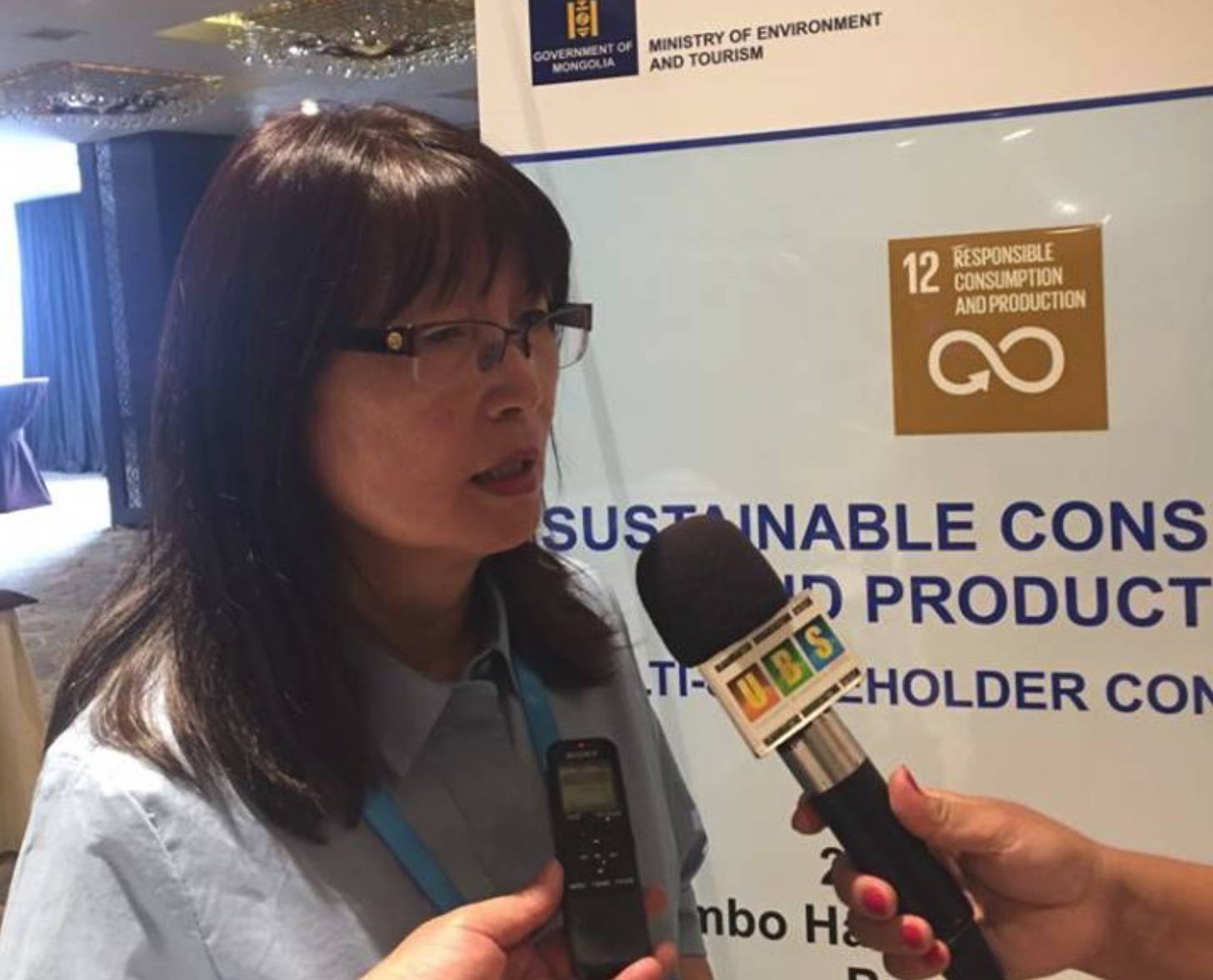
Ulaanbaatar, Mongolia, 24 August, 2018 – Recognizing the role a transformation towards sustainable consumption and production (SCP) needs to play in Mongolia’s development, the Government of Mongolia, the European Union Delegation to Mongolia and SWITCH-Asia SCP Facility, the EU’s flagship programme covering the issue, launched the first of a series of Multistakeholder Consultations. Today’s dialogue brought together voices from civil society and the government while also inviting expert practitioners to discuss challenges and identify national priorities on SCP with the view of strengthening Mongolia’s work towards achieving the United Nations Global Sustainable Development Agenda 2030 and its Sustainable Development Goals (SDGs).
The discussions saw multiple themes receive attention, from the construction and housing sectors to textiles. SWITCH-Asia SCP Facility’s preliminary national assessment confirmed the importance of targeting these issues, which can all see improvement through addressing resource efficiency and promoting circular economy. In Mongolia, where 17 kilograms of natural resources is used for every dollar of economic activity compared to the region’s average of three kilograms per dollar, resource efficiency solutions are imperative across all sectors.
These conclusions were shared by representatives from the Ministry of Environment, Ministry of Finance, the Ministry of Construction and Urban Development and Ministry of Energy, all of which are focusing on policies to address these concerns. SWITCH-Asia SCP Facility and the EU seek to support Mongolia on SCP policy development and see potential by concentrating on sustainable housing, low carbon and less resource intensive production systems, alternative energy and heat supply, which will benefit from support in awareness raising, eco-innovation, sustainable public procurement and eco-labelling.
This consultation kicked off transparent dialogue that is already beginning to enhance understanding of policies and practices on SCP in Mongolia across sectors, government ministries and stakeholder groups, setting the tone for future impactful consultations to take place over the next four years.
As stated by Mrs. T. Bulgan of the Ministry for Environment and Tourism of Mongolia, “the SCP Multistakeholder Consultations are helping establish a path to reach to the SDGs, providing a much-needed chance to understand the obstacles that affect us all and consider opportunities for solutions in unifying our response, together with concerned stakeholders. We look forward to more dialogue with SWITCH-Asia and putting the words from the talks into action”.
Attaching great interest in further promoting the needed change towards sustainable development through SCP, the core of the SWITCH-Asia Programme, the EU Ambassador in Mongolia highlighted “The European Union is fully committed to implement the 2030 Agenda for Sustainable Development Goals, which are at the core of its development cooperation policy. The European Union, is happy to work in partnership with SWITCH-Asia Programme and the Government of Mongolia and other international donors towards a more sustainable consumption and production patterns.”
Committed to delivering impact on the ground with concerned stakeholders in Mongolia, the SWITCH-Asia SCP Facility Team Leader, Arab Hoballah, insisted on the “necessity to adequately frame the needs for change, through partnerships and relevant means, looking at the drivers to unlock the opportunities, targeting producers as well as consumers while supporting institutions and market to reply to the needs. Being an evolving process, SCP should be mainstreaming in other development policies to ensure effective implementation”.
Changing Mongolia's unsustainable consumption and production patterns is urgently needed to achieve resilience and sustainability goals, and to effectively implement the Sustainable Development Vision (SDV 2030) and the National Green Development Policy (NGDP). The Government of Mongolia, the EU Delegation to Mongolia, SWITCH-Asia SCP Facility and other partners in the SCP Multistakeholder Consultation have already started to lay the groundwork needed to make progress. Solutions will follow and resource efficiency, among other key areas, will see dramatic change over the next several years.
Featured in Chuhal.mn


